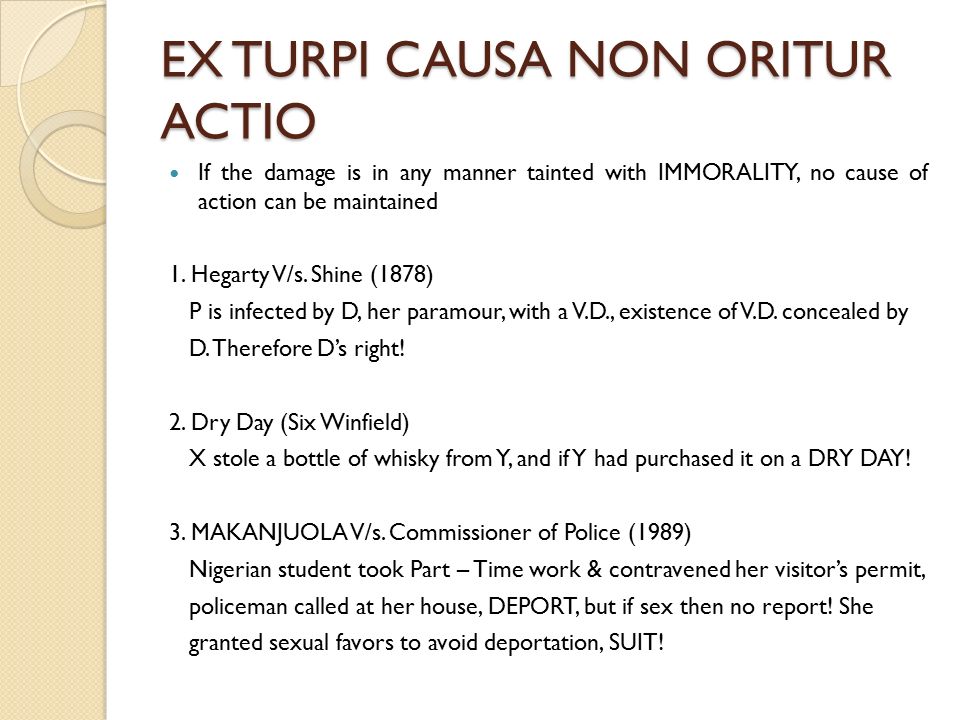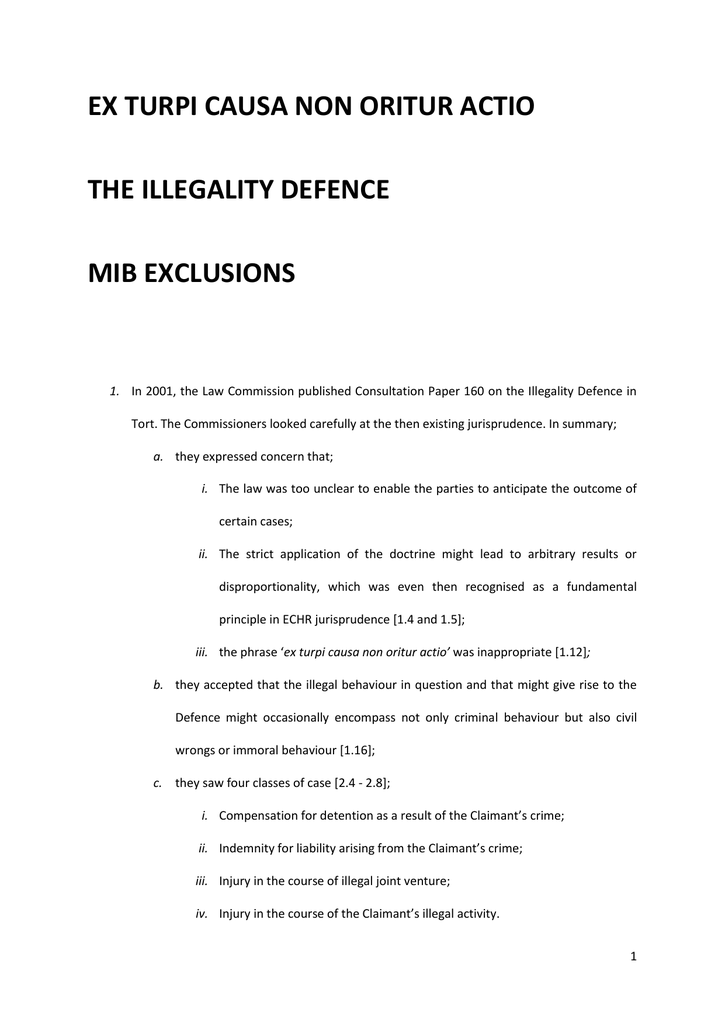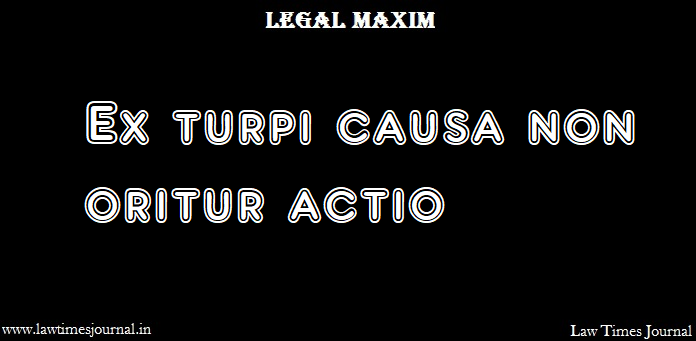Ex Turpi Causa Non Oritur Actio Rationale
Post author by kierxote.
Ex turpi causa non oritur actio rationale. It is one of the defenses which can exempt the defendant from his liability because the plaintiff has also committed an illegal act. It is often referred to as the illegality defence although it extends. Where the maxim of ex turpi causa is successfully applied it acts as a complete bar on recovery. In other words if one is engaged in illegal activity one cannot sue another for damages that arose out of that illegal activity.
Ex turpi causa non oritur actio which implies that no action can arise from any illegal act. This defence is very complicated as a result of which the courts had to come up with many different tests in determining the applicability of this defence. Ex turpi causâ non oritur actio this old and well known legal maxim is founded on good sense and expresses a clear and well. Ex turpi causa non oritur actio latin from a dishonorable cause an action does not arise is a legal doctrine which states that a plaintiff will be unable to pursue legal remedy if it arises in connection with his own illegal act.
No action can be based on a disreputable cause the principle that the courts may refuse to enforce a claim arising out of the claimant s own illegal or immoral conduct or transactions. The doctrine of ex turpi causa non oritur actio was applied as far back as 1775 when the judgment in holman v johnson confirmed that no court will lend its aid to a man who founds his cause of action upon an immoral or an illegal act. The court ruled in the favor of the garden owner by providing the rational that the punch by the café owner was of greater proportion than the proportion of the punch by the garden owner therefore there was no ex turpi causa non oritur action. Ex turpi causa non oritur actio.
Quoted in a subsequent supreme court of canada decision of 1894 walsh v trebilcock justice lindley wrote. The café owner claimed that due to ex turpi causa non oritur action he cannot be held liable. Ex turpi causa non oritur actio. Therefore this is also known as the plaintiff a wrongdoer defense.
Ex turpi causa non oritur actio is one of the defences available to the defendant. Particularly relevant in the law of contract tort and trusts ex turpi causa is also known as the illegality defence since a defendant may plead that even. The legal doctrine of ex turpi causa is one which states that a claim will not succeed if it arises in connection to the claimant s own illegal act. This maxim applies not only to tort law but also to contract restitution property and trusts.
In scott v brown 1892.











